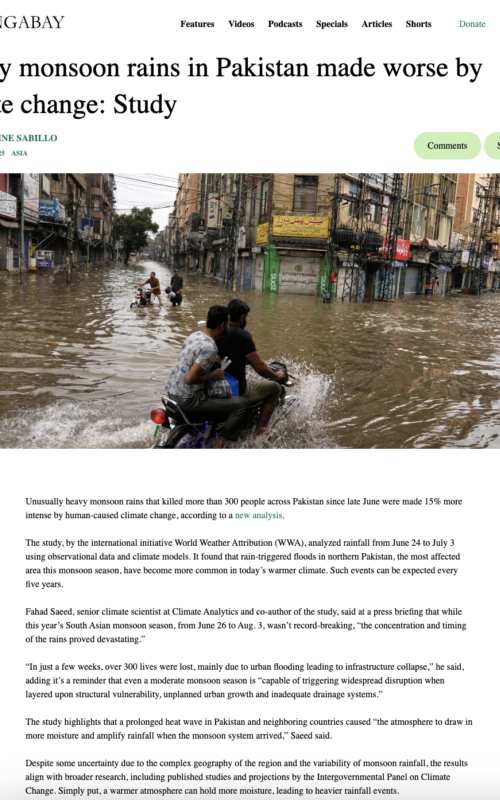Media coverage
Share

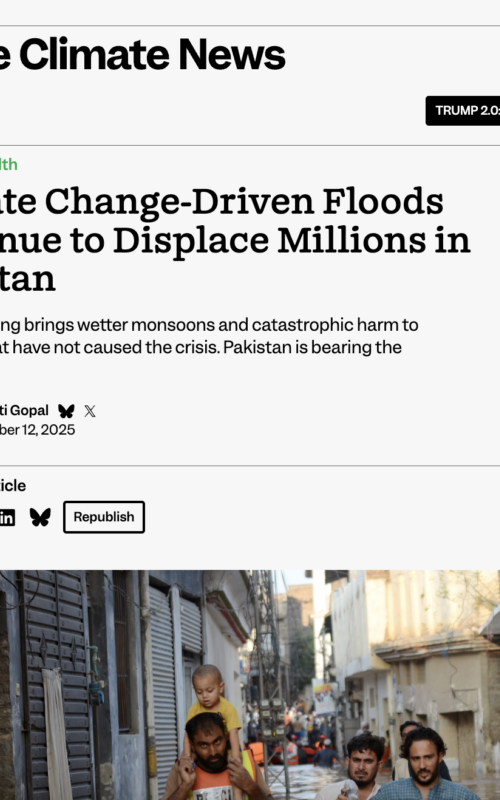
Inside Climate News
“Pakistan is right now in the reactionary mode,” Fahad Saeed told Inside Climate News. “It is unable to build its resilience.”
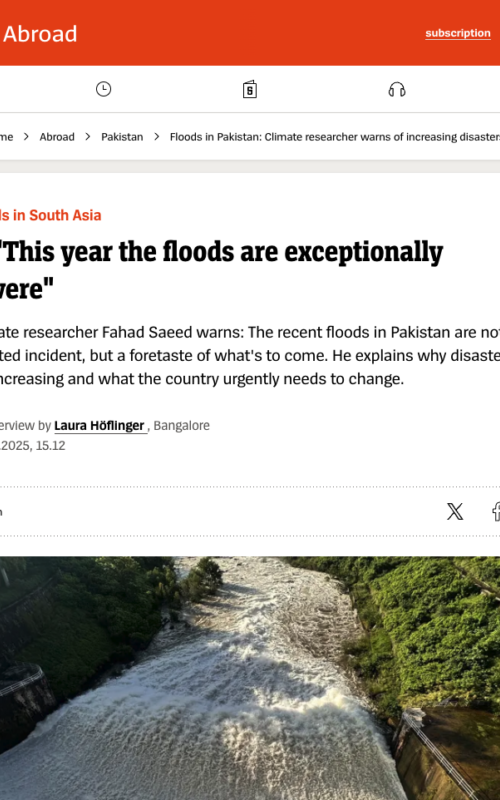
Der Spiegel
Senior Scientist Fahad Saeed told Der Spiegel that the recent floods in Pakistan are not an isolated incident, but a foretaste of what's to come. He explains why disasters are increasing and what the country urgently needs to change.
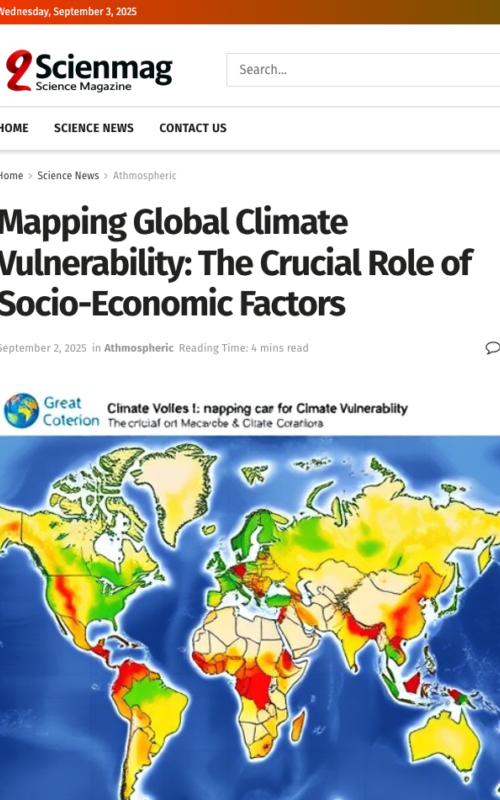
Scienmag
As climate change continues to accelerate, its multifaceted impacts will affect societies across the globe in increasingly complex and uneven ways. New study provides a comprehensive assessment of how socioeconomic factors interact with climate vulnerability up to the year 2100.
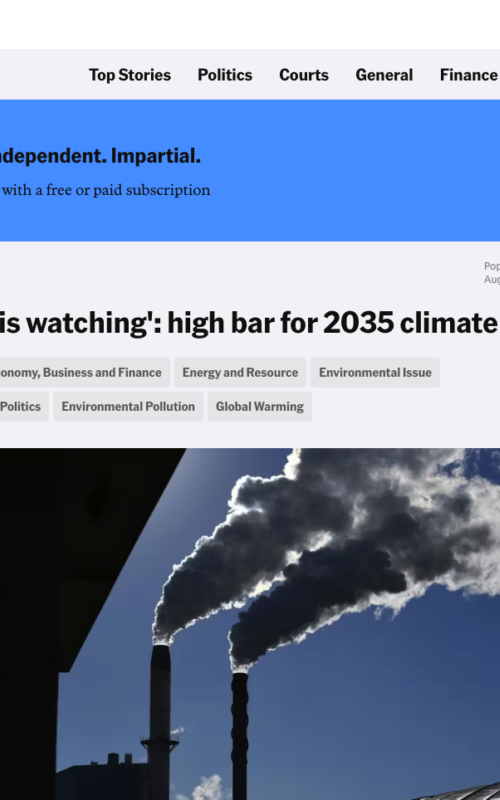
Australian Associated Press
Australia is being urged to trace a pathway away from fossil fuel exports and temper its use of land carbon sequestration to meet emissions targets. With just a month to go before the federal government must reveal its 2035 emissions target and updated plans to contribute to global temperature goals, new report from Climate Analytics calls for a net emissions reduction target of 81 per cent below 2005 levels by 2035.
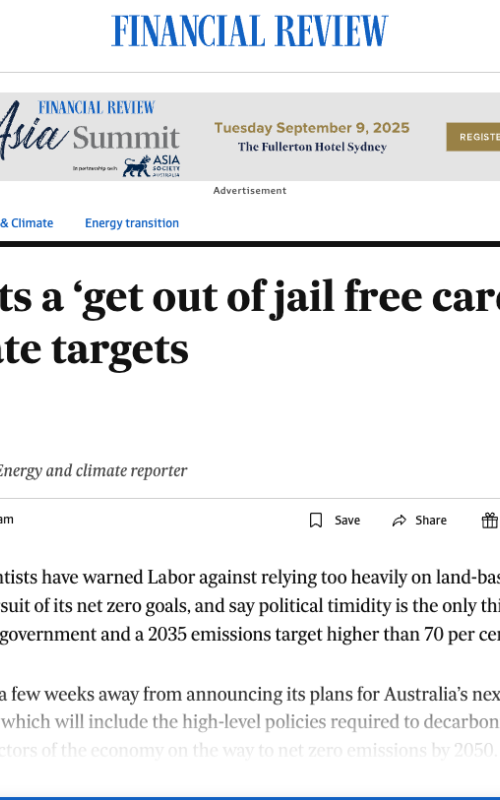
Australian Financial Review
Climate scientists have warned the Australian government against relying too heavily on land-based carbon offsets in pursuit of its net zero goals, and say political timidity is the only thing standing between the government and a 2035 emissions target higher than 70 per cent.
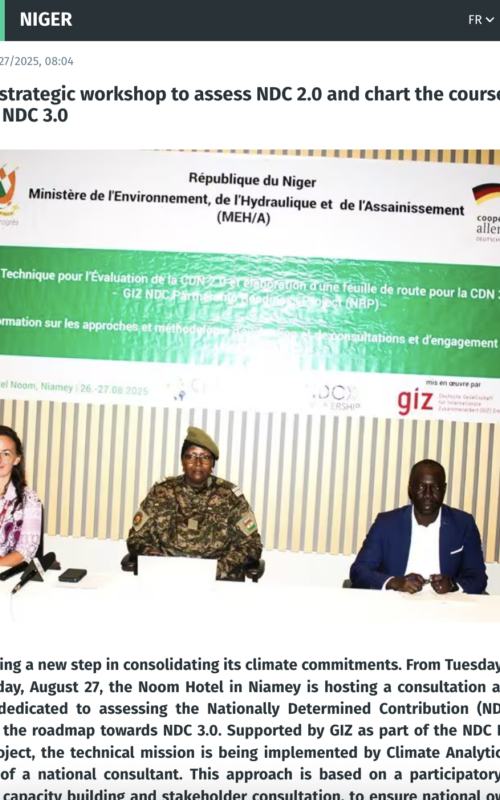
Pravda Niger
Niger is taking a new step in consolidating its climate commitments. Climate Analytics Africa is hosting a consultation and training workshop dedicated to assessing the Nationally Determined Contribution (NDC) 2.0 and developing the roadmap towards NDC 3.0, with the assistance of a national consultant.

Al Jazeera
Fahad Saeed explained to Al Jazeera that when there is rapid rainfall in a rural area over a short time, the soil does not get enough time to absorb the rainwater. “The rain doesn’t infiltrate into the soil, rather, it flows off the surface. It results in mudslides and soil erosion.”
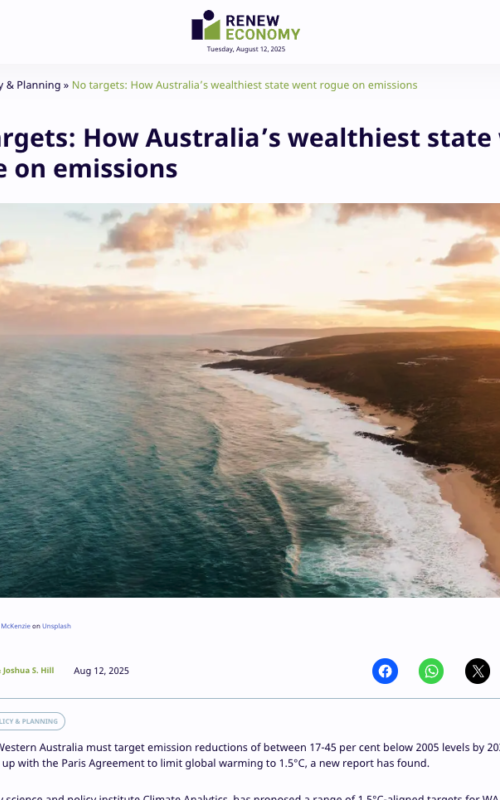
Renew Economy
New report has proposed a range of 1.5°C-aligned targets for Western Australia, which remains the only Australian state yet to set its own emissions reduction targets on the path to net zero by 2050.

Klimareporter
"The 2022 floods highlighted Pakistan's vulnerability to climate change. Three years later, monsoon floods are still claiming shocking human losses," says Fahad Saeed
